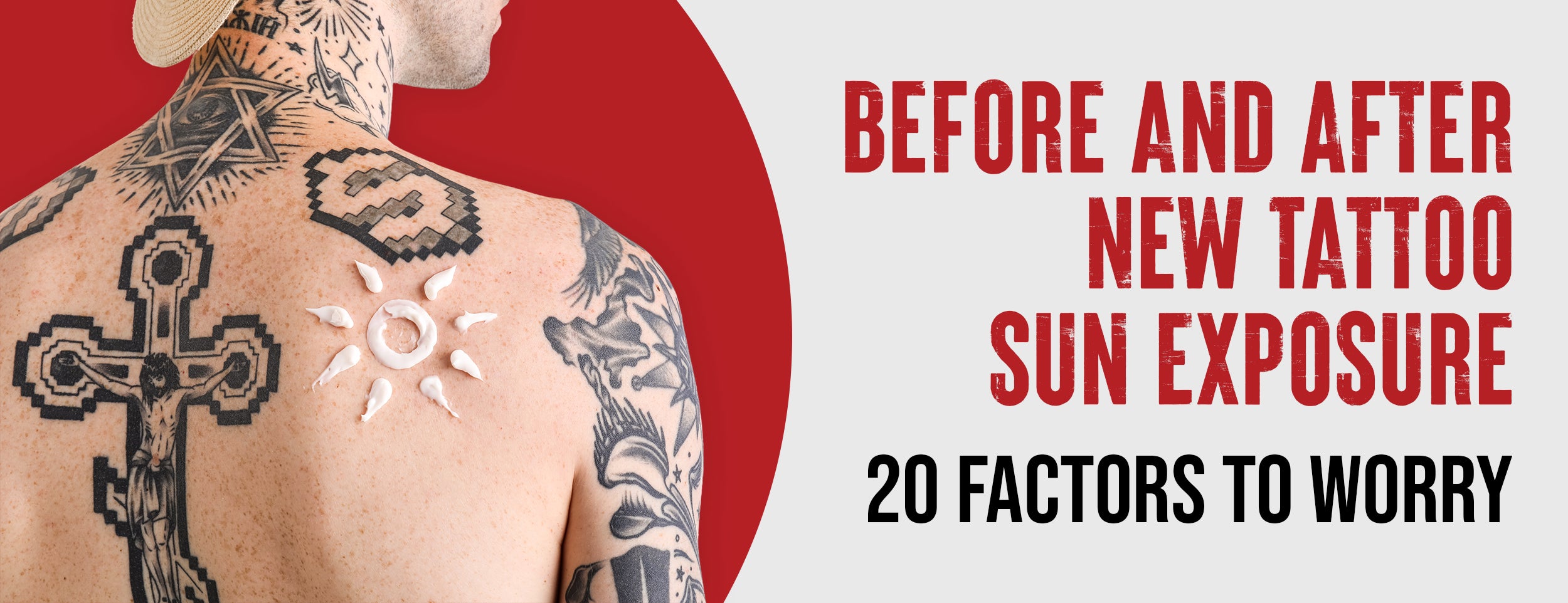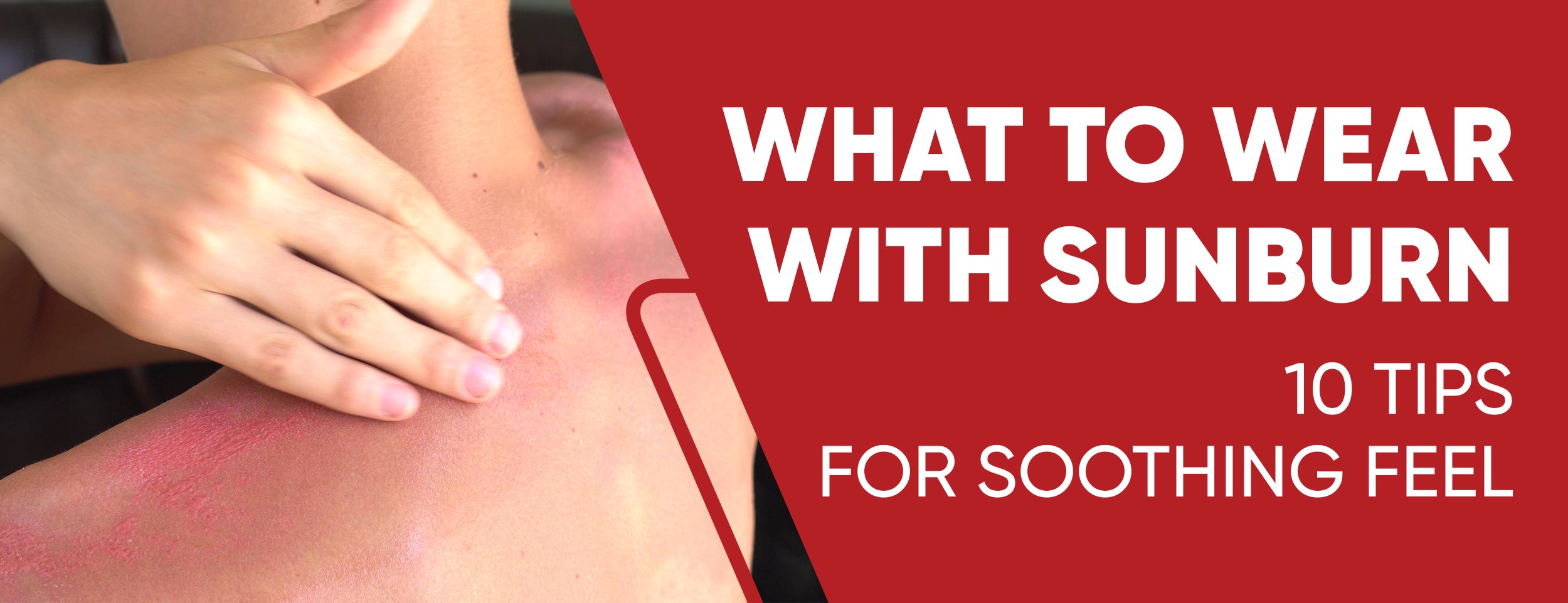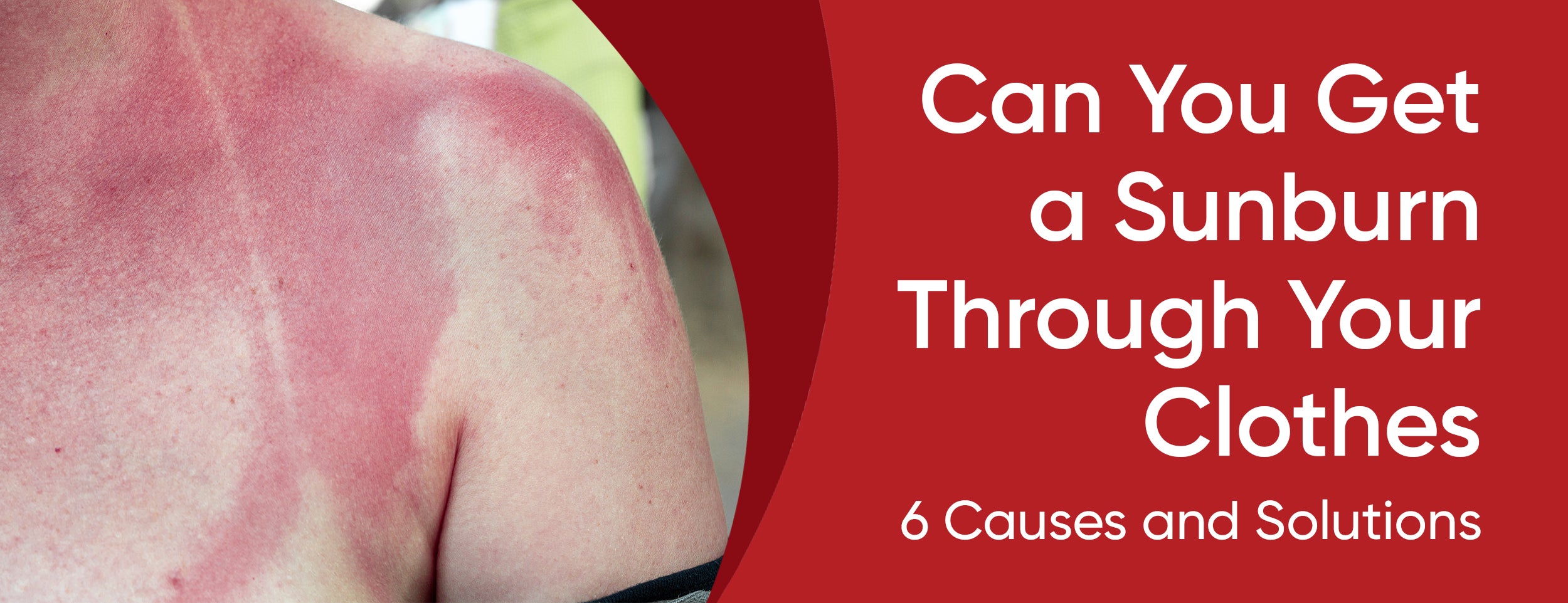Mild sunburns can heal independently, but severe sunburns may require medical attention. Dehydration and nausea can also result from severe sunburns. It is essential to seek medical attention if the sunburn is severe, covers a large area of the body, or is accompanied by high fever or extreme pain.
You should seek medical attention immediately if you have an excruciating sunburn blistering or covering much of your body. If you ever need immediate medical attention, seeking emergency care is essential. Experience symptoms such as high fever, chills, or nausea.
In this blog post, we'll discuss when you should go to the hospital for a sunburn and factors to consider when deciding to go to the hospital.
When Should You Go to the Hospital for a Sunburn: 5 Things

Sunburn can be painful and sometimes dangerous, leading to skin damage and other health complications if not treated properly. While most sunburns can be treated at home with over-the-counter remedies, there are some cases where it may be necessary to seek medical attention.
Severity of the Sunburn
The severity of sunburn varies depending on the intensity of the sun's rays and the duration of exposure. Sunburns are classified as first-degree, second-degree, or third-degree burns. It's vital to assess the severity of the sunburn before deciding whether to go to the hospital or treat it at home.
Location of the Sunburn
The location of the sunburn is an essential factor in determining whether to get medical treatment. If the sunburn is on the face, scalp, lips, or ears, it is more severe because it can cause permanent damage or even skin cancer. Burns on sensitive areas such as genitals, hands, feet, and joints also require medical attention.

Age and Medical Condition
Age and underlying health conditions play a crucial role in dealing with sunburns. People and those with a weakened immune system, diabetes, or heart disease are more susceptible to sunburn and require medical intervention to prevent further complications.
Exposure to the Sun for an Extended Period
If the patient has been exposed for an extended period, it can cause severe sunburns that require medical attention. Exposure to the sun can cause dehydration, sun poisoning, or heat stroke, which can be life-threatening.
Sunscreen Usage
If someone has applied sunscreen but still has severe sunburns, they may need medical attention. Sunscreen helps prevent sunburns but is not 100% effective, especially with prolonged sun exposure.
9 Sunburn Symptoms to Visit the Hospital

Sunburns are a common skin condition that occurs because of exposure to ultraviolet (UV) rays from the sun. It is possible to treat most sunburns at home with the help of basic first aid measures. There are certain instances when it is better to seek medical attention. Below are some situations where it is recommended to see a doctor about a sunburn:
Severe Pain and Blistering
If a sunburn is causing severe pain and blisters, seek medical help. Severe pain and blistering can be signs of a second-degree burn, leading to complications if not treated promptly.
Large Infected Areas
If a sunburn has become infected and has caused extensive areas of swelling, redness, and warmth, it is crucial to get it checked by a doctor. Infected sunburns can be dangerous and lead to complications like cellulitis, a severe bacterial skin infection.
Electrolyte Imbalances
Prolonged sun exposure can lead to dehydration, which imbalances the body's electrolytes. Symptoms of electrolyte imbalances include muscle cramps, weakness, confusion, and seizures. If you experience any of these symptoms with sunburn, seek medical attention immediately.

Sun Poisoning
The result of sun poisoning, also known as polymorphic light eruption (PLE), is a severe form of sunburn that can cause a severe rash, hives, or blisters on the skin. If you experience these symptoms, nausea, vomiting, fever, chills, and headache, you need medical help.
Tissue Damage and Cancer Risk
Prolonged sun exposure can cause tissue damage and contribute to the development of skin cancer. If you have a history of skin cancer or notice any changes in a mole or freckle's shape, size, or color, it is essential to consult a dermatologist.
High Fever and Dehydration
Sunburns accompanied by a high fever, headache, severe pain, dehydration, confusion, nausea, or chills should be treated immediately. These may be indications that you have a severe sunburn or that it has become infected, which can be life-threatening sometimes.
Infected Sunburns

Sunburns can become infected if left untreated, leading to more severe complications. Look for signs of an infected sunburn, such as swelling, redness, warmth around the affected area, and pus or drainage from blisters. If you notice any of these symptoms, getting medical attention right away is essential.
Severe Pain and Discomfort
If your sunburn is causing you severe pain and discomfort, despite trying home remedies like cool compresses and baths or over-the-counter creams and ointments, you may need to go to the hospital. Severe sunburns can lead to blisters, peeling skin, and even skin damage that requires medical attention.
No Improvement With At-Home Care
If your sunburn does not respond to at-home care after a few days, it may be time to visit a doctor. Severe sunburns can take weeks to heal, and if they aren't treated properly, they may result in scarring or hyperpigmentation. A doctor can provide the medication and treatment to help your skin heal faster and properly.

Conclusion
Sunburns are not just a minor irritation but can seriously threaten our health. If you experience any severe symptoms, seeking medical attention is crucial. It's always better to err on caution regarding our well-being.
When should you go to the hospital if you have a sunburn? When in doubt, seek medical attention. Your skin, and ultimately your overall health, will thank you for it. Always take care of your skin and protect yourself from the sun's harmful rays.

![9 Sunburn Symptoms [5 Factors] When To Go To The Hospital](http://drnumb.com/cdn/shop/articles/When_Should_You_Go_to_the_Hospital_For_a_Sunburn__5_Things_9_Symptoms.jpg?v=1704201018&width=1100)










![How to Cover Sunburn With Makeup: 15 Ideas [Easy Solutions]](http://drnumb.com/cdn/shop/articles/How_to_Cover_Sunburn_With_Makeup__15_Ideas_Easy_Solutions.jpg?v=1705581434)


